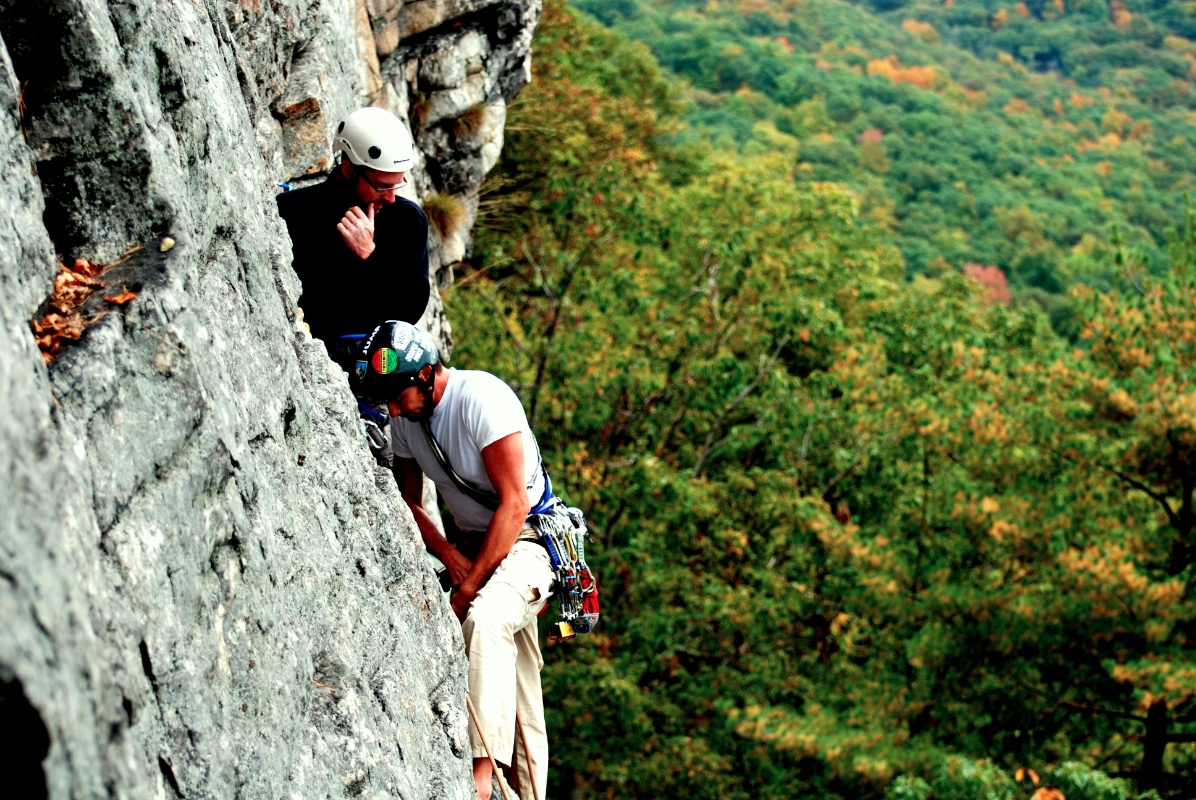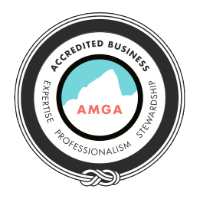Self Rescue for Climbers

Background
Self-rescue, in climbing, or in the broader activity of mountaineering, refers to actions and techniques, taken by either an individual climber or teams, to retreat or advance from situations which would leave them, otherwise unprepared, stranded (and, possibly, dead).
HighXposure’s Self-rescue for Climber course provides experienced recreational climbers essential rescue techniques including lowering and raising techniques using a plaquette-mode device, basic techniques used to escape the belay, setting up bail anchors, and ascending a rope. Most importantly, you will learn to avoid situations that have the potential to require self-rescue.
Self-rescue is an alternative to calling search and rescue (SAR) which can save the climbers being charged for SAR services and can avoid putting SAR team members in harm's way. Unfortunately, many aspiring climbers don't take the opportunity to train themselves in real-life conditions (overhanging edges, etc.) and "find they need to seek outside help".
When members of a team require self-rescue, rescuing a fallen partner may expose the rescuer to significant risks. Self-rescue requires having a practiced rescue plan, good communication, and foresight to avoid "an incident within an incident".
Program description
We will work with you to teach you how to assess risks, and avoid or reduce them in the first place. We'll introduce you to new clever techniques and systems to reduce the chance of ever having to use the rescue skills you will learn on the course.
The full Self Rescue for Climbers course is taught in 2 days. The first day covers basic techniques, and the second day is focused on more advanced skills. We recommend taking the full course, however taking the first part only would be very useful, too. You can always take the second part later. During both days you will have a chance to practice all the skills you learn in a real life situations.
Skills and techniques you will learn (Part I)
- Risk assessment and avoiding dangerous situations;
- Preparation, planning and communication;
- Basic rescue knots and hitches;
- Load transfers, the basic principles of all rope rescue techniques;
- Accending a rope;
- Building pulley systems (2:1 and 3:1);
- Rescuing and assisting the second: raises, lowers and counterbalanced lowers;
Part II
- Rescuing the injured leader in the single and multipitch environment;
- Tandem and counterbalanced rappels;
- Rappelling multiple pitches with an unconscious climber;
- Effective knot passes on rappels;
All these skills are useful in everyday climbing as well. You will become faster and more efficient rock climber after taking the program.
Your guide can accommodate you or your group up to 4 climbers total. You are booking a private day of climbing / instruction and will not be placed into a larger group. Your day and your instruction will be customized to you and your group's abilities and knowledge.
All our courses are designed to be completable in one full day. In most cases, this is the norm however with higher level courses, if your guide feels you have not mastered the material by the end of the day he will suggest additional training. If this occurs it is because you are not yet able to execute critical procedures and show proficiency with critical skills. Larger groups can be challenging particularly for the Top-rope Anchor, Learn to Lead, and Self-Rescue for Climbers courses, which all have lengthy skill demonstration components.
No technical equipment is required. HighXposure supplies whatever is necessary. Feel free to bring your personal gear. We will fill-in as needed.


